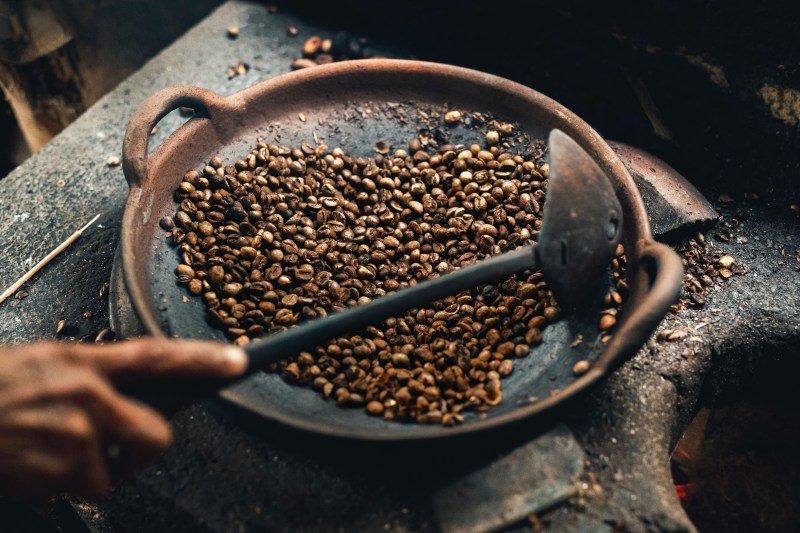Your morning Starbucks run may become a thing of the past. Coffee experts predict more and more consumers will be swapping their coffee shops’ to-go orders for homemade brews in the coming months. With rising inflation and the ever-present risk of a recession, the change comes down to financial matters. But according to Vanusia Nogueira, the executive director of the International Coffee Organization (ICO), this shift is due to a chain reaction of events that all begins with climate change.

Climate change and depleted inventories
In a recent interview with Reuters, Nogueira explained that international coffee supply has not been able to keep up with demand. In the 2021/22 coffee year, total production reached 167.2 million 60-kilogram bags of coffee, marking a 2.1% drop from the previous year. Meanwhile, global consumption of coffee increased by 3.3% to 170.3 million bags.
A variety of factors may have contributed to this subpar yield: fluctuating covid-19 cases, lingering supply chain issues, political instability, and—of course—climate change. “We have many climate problems in the top producing regions,” Nogueira told Reuters.
And according to a recent study, this issue is only expected to worsen. Researchers found that, by 2050, coffee plants will be drastically more difficult to grow and cultivate in current coffee-producing regions because of climate change.
Low supply + high demand = rising prices
Across the country, Americans are feeling the effects of inflation, and nowhere is it more obvious than in the grocery store. Unfortunately, coffee has been hit hard as prices continue to rise excessively around the country and worldwide. According to Tasting Table, the price of ground coffee in the U.S. rose 39% in August compared to the year prior. And in the EU, the cost of coffee has risen by an average of 16.9% in August 2022 compared to August 2021. There is some good news: Nogueira predicts coffee prices will remain about the same in 2023.

Fewer coffee shop trips
What does this mean for the way we drink coffee? Nogueira doesn’t think this will affect how much coffee people drink. Instead, she believes this will translate into fewer visits to local coffee shops and more home-brewed cups of joe. “I don’t think there will be an impact in terms of volumes, but in the way coffee is drunk and in the quality, people are going to lower the quality of what they drink and change where they drink it,” she stated in her Reuters interview. She also warned that specialty coffee shops will be hit the hardest.
If you’re a local coffee shop regular, your morning commute is about to get a lot shorter. With low coffee inventories caused by climate change and out-of-control inflation, experts believe we’ll all soon be skipping coffee shops and getting our caffeine fix at home. And judging by just how much coffee prices have risen in the past year, it may be the smartest decision, too. Now is the time to perfect your at-home coffee brewing routine—your bank account will thank you later.




